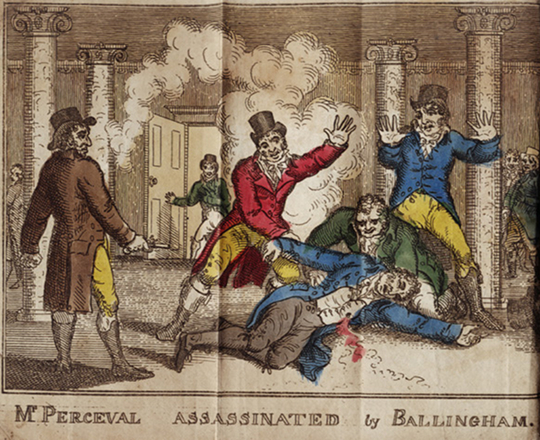On May 11, 1812, British Prime Minister Spencer Perceval entered the House of Commons to hear a debate. Immediately upon entering, a man who had been sitting by the fireplace in the lobby got up, drew a pistol, and shot him dead without saying a word. He then calmly sat back down and waited to be arrested. Perceval had not been a very popular prime minister, and at first, there were fears that his assassination was the start of a general uprising. The truth, however, was much more mundane than that.
Perceval had been leading the British government during a crucial phase of the long-running Napoleonic Wars, and he was determined to defeat France at any cost. This included throwing the entire might of Britain’s industry and economy into the conflict, which created widespread poverty and hardship. So many had been harmed by his policies that people across the country rejoiced upon hearing of his death. It seemed obvious, therefore, that his assassination must be related to that. However, his assassin turned out to be a random merchant with a grudge and a questionable grip on sanity.
The assassin, John Bellingham, was a merchant from Liverpool who had incurred a lot of debt in Russia that he claimed he didn’t really owe. He had ended up in a Russian prison over the debt, and he believed that the British government should compensate him to make up for the money he lost. The British government did not feel that it owed him any compensation for his personal business losses. After trying unsuccessfully for years to get “his” money, he decided that shooting the Prime Minister was the only way to get his case heard in court. However, the only case he got heard was his murder case. His trial was held on May 15. It lasted a total of 8 hours, and that included the 15 minutes the jury spent deliberating. He was executed on May 18, one week after the assassination.

